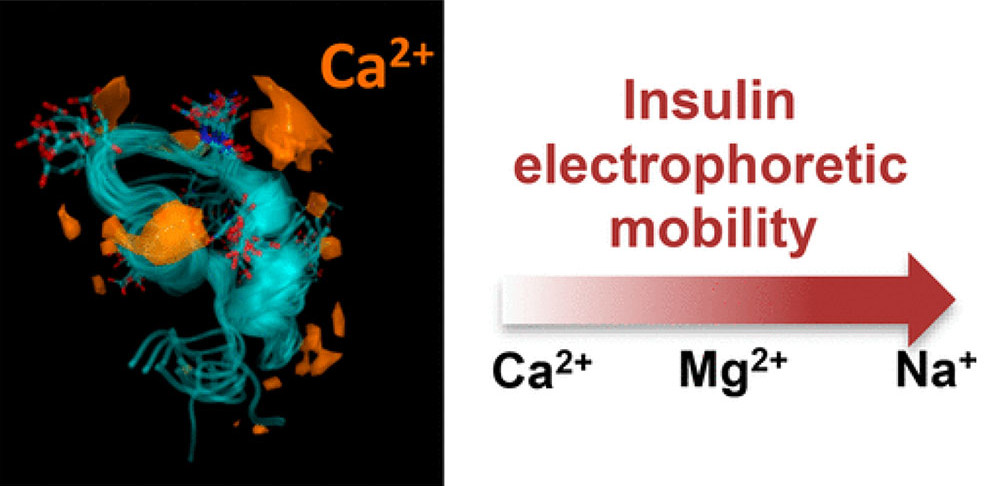
A new paper from Pavel Jungwirth’s group with Elise Duboué-Dijon as a first author, published in the Journal of Physical Chemistry B, was featured as ACS Editors' Choice based on recommendations by ACS journals' editors.
In this study, the researchers characterize the binding of divalent cations to insulin in aqueous salt solutions by means of capillary electrophoresis and molecular dynamics simulations.
The results show a strong pH dependence. At low pH, at which all the carboxylate groups are protonated and the protein has an overall positive charge, all the cations exhibit only weak and rather unspecific interactions with insulin. In contrast, at close to neutral pH, when all the carboxylate groups are deprotonated and negatively charged, the charge-neutralizing effect of magnesium, calcium, and zinc, in particular, on the electrophoretic mobility of insulin is significant.
This is also reflected in the results of molecular dynamics simulations showing accumulation of cations at the protein surface, which becomes smaller in magnitude upon effective inclusion of electronic polarization via charge rescaling.
These results have implications for understanding the delicate balance between the active monomeric form of insulin and the inactive hexamer in pharmaceutical applications.
Paper:
- Elise Duboué-Dijon, Pauline Delcroix, Hector Martinez-Seara, Jana Hladílková, Pavel Coufal, Tomáš Křížek, and Pavel Jungwirth. Binding of Divalent Cations to Insulin: Capillary Electrophoresis and Molecular Simulations. Journal of Physical Chemistry B, article ASAP online from January 23, 2018.
Read next...






